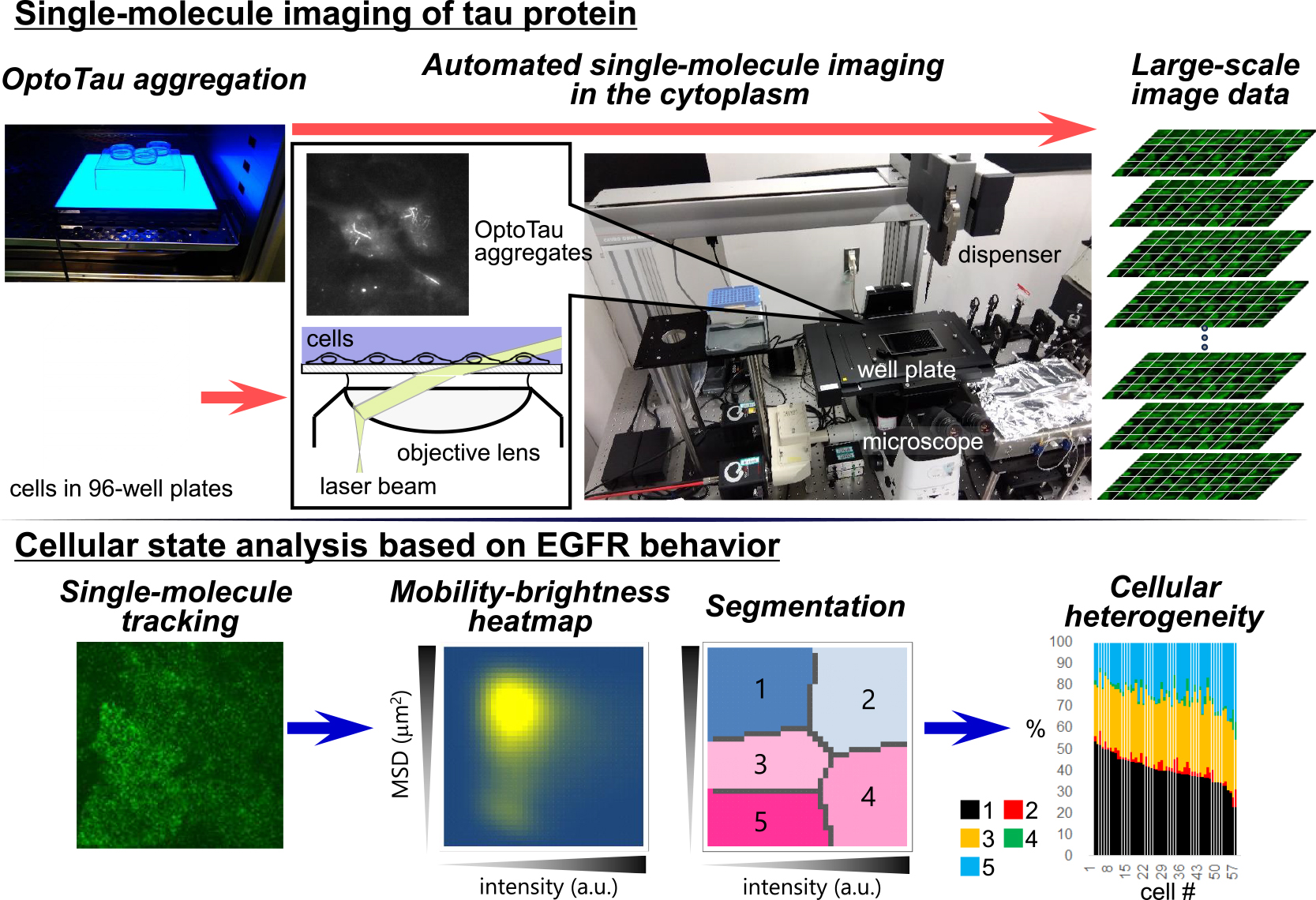1
"Application of single-molecule analysis to singularity phenomenon of cells" by Michio Hiroshima, Hiroko Bannai, Gen Matsumoto, Masahiro Ueda is published in BPPB as the J-STAGE Advance Publication.
2024 May 08 BPPB
A following article is published as the J-STAGE Advance Publication in "Biophysics and Physicobiology".
Michio Hiroshima, Hiroko Bannai, Gen Matsumoto, Masahiro Ueda
"Application of single-molecule analysis to singularity phenomenon of cells"
URL:https://doi.org/10.2142/biophysico.bppb-v21.s018
- Abstract
- Single-molecule imaging in living cells is an effective tool for elucidating the mechanisms of cellular phenomena at the molecular level. However, the analysis was not designed for throughput and requires high expertise, preventing it from reaching large scale, which is necessary when searching for rare cells that induce singularity phenomena. To overcome this limitation, we have automated the imaging procedures by combining our own focusing device, artificial intelligence, and robotics. The apparatus, called automated in-cell single-molecule imaging system (AiSIS), achieves a throughput that is a hundred-fold higher than conventional manual imaging operations, enabling the analysis of molecular events by individual cells across a large population. Here, using AiSIS, we demonstrate the single-molecule imaging of molecular behaviors and reactions related to tau protein aggregation, which is considered a singularity phenomenon in neurological disorders. Changes in the dynamics and kinetics of molecular events were observed inside and on the basal membrane of cells after the induction of aggregation. Additionally, to detect rare cells based on the molecular behavior, we developed a method to identify the state of individual cells defined by the quantitative distribution of molecular mobility and clustering. Using this method, cellular variations in receptor behavior were shown to decrease following ligand stimulation. This cell state analysis based on large-scale single-molecule imaging by AiSIS will advance the study of molecular mechanisms causing singularity phenomena.





